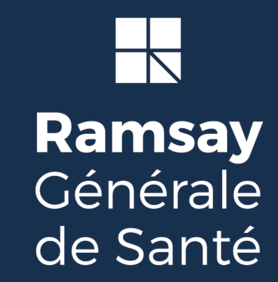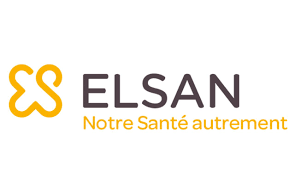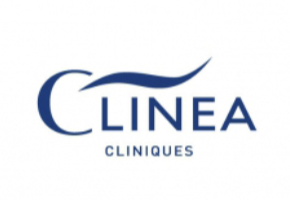Summary
The French private hospital market, consisting of 972 for-profit clinics as of 2020, has experienced a 22% rise in sales, reaching 17.3 billion euros in 2021. The aging population, with those aged 75 and over projected to double by 2070, is driving increased consumption of medical care, which grew by 7.9% in 2021, representing the highest rate in the last 30 years. Despite the decline of full hospitalization capacity and a notable reduction in the total number of healthcare facilities, especially in the public sector, the private for-profit sector is capitalizing on innovation, quality care, and the development of new services such as general medicine and outpatient care.
However, financial performance in the sector is mixed; while the overall net income for private clinics rose to 3.0% of revenues in 2020, nearly a fifth remain in deficit. Additionally, a significant restructuring through mergers and acquisitions has taken place, with major players like Elsan, Ramsay Santé, Korian, and Clinéa commanding a significant market presence. Regional disparities also persist, with varying percentages of private clinic capacities. The sector operates under strict regulations, with activities subject to authorization by regional health agencies and regular quality assessments by the French National Authority for Health.
The Expanding Demand for Private Healthcare Services in France: An Analysis of Market Trends and Consumption Patterns
In France, the private healthcare sector is experiencing notable growth, driven primarily by an aging population and a favorable public perception of private clinics. As the second-largest healthcare provider in the country, private for-profit clinics have recorded a 22% increase in sales, with revenues stretching to between 17 and 18 billion euros in 2021. The French population, particularly those over 65, is set to double by 2070, reaching a significant 13.7% of the total population. This demographic shift is bound to escalate the demand for healthcare services, which already saw a striking rise of between 7 and 8% in 2021—the highest in three decades.
Unsurprisingly, hospital care consumes the lion's share of France's medical expenditures, accounting for nearly half of all health-related spending. Private clinics are pivotal in this landscape, with their services totaling a substantial 25 billion euros in 2021. Consequently, these clinics have been diversifying their offerings, expanding into general medicine and outpatient care to cater to the growing needs. Patients appear to hold a positive view of private healthcare, with between 80 and 90% recognizing private clinics' capability to deliver high-quality care. This sentiment is further echoed by the fact that the majority of French citizens, across both public and private sectors, have at some point opted for private care, regardless of their socioeconomic status.
However, this demand has also led to some regional disparities. While public healthcare establishments dominate nationally with 60% of the healthcare capacity, private clinics account for between 10 to 40%, with their presence being much more prominent in departments like Occitanie, Corsica, and PACA. On the financial side, private clinics show a robust gain with an approximate net income of 3% of their revenues as of 2020, thus reinforcing the market's growth trajectory. This financial vigor is likely to support further innovation and expansion within the sector, ensuring that the French private healthcare market remains on its promising upward path..
The Landscape of Major Healthcare Providers in the French Private Clinic Sector
The French private clinic market is characterized by a dynamic interplay of prominent players who continue to evolve and adapt their offerings to meet the changing needs of the populace. Some of the key contenders in this space have augmented their presence through strategic mergers, acquisitions, and service diversifications, reinforcing their impact on the sector.
- Elsan emerges as a titan in the private healthcare industry, having secured its foothold as one of the largest operators in France. Elsan's presence has been amplified through substantial external growth operations, rendering it a significant proprietor of private clinics. The group's expansive network of healthcare facilities underlines its commitment to providing a comprehensive range of medical services to a diverse patient demographic.
- Ramsay Santé represents another influential entity that has taken steps toward integration and innovation to fortify its market position. Notably, Ramsay Santé has ventured into primary healthcare by opening new health centers, showcasing a progressive approach to patient care centered around a capitation payment system. This leap into primary health services illustrates Ramsay Santé's focus on holistic, continuous care, and its willingness to experiment with novel payment models as it participates in trials of episode-based payment for specific pathologies.
- Korian, predominantly recognized for its senior care services, has also made strides within the private clinic domain. By offering a blend of medical care, rehabilitation, and psychiatric services, Korian extends its influence beyond traditional eldercare to a broader realm of health services.
- Clinéa, operated by Orpea, contributes to the diversified healthcare landscape through a range of clinics specializing in follow-up care, rehabilitation services, and mental health care. Their facilities are strategically designed to cater to the growing demand for specialized medical treatments and rehabilitative care.
In the competitive landscape of private healthcare, these players have demonstrated an adept ability to adapt, integrate, and escalate their offerings. Their relentless pursuit of service enhancement, clinical research, and technological innovation ensures their stalwart reputations remain intact. However, amidst the market's promising outlook, geographical disparities and the stringent regulatory framework of authorizations by the Agence régionale de santé (ARS) present a challenging environment for these healthcare providers to navigate. Nonetheless, these key players continue to shape the blueprint of private healthcare in France, constantly redefining excellence and accessibility in a sector that is at the heart of public well-being.
to understand this market
Detailed content
 Inforamtion
Inforamtion
- Number of pages : 30 pages
- Format : Digital and PDF versions
- Last update : 15/09/2023
 Summary and extracts
Summary and extracts
1 Market overview
1.1 Definition and scope of study
A private hospital or private clinic is an establishment run by a private group or association that provides healthcare services. The existence of a dual public/private hospital system is a specific feature of France. The French are very attached to it, and attach great importance to the possibility of choosing their doctor and their establishment (public or private).
Private clinics specialize in four areas:
- MCO: Medicine, Surgery, Obstetrics
- SSR: Care and Rehabilitation Services
- Psychiatry
- HAD : Hospitalization at Home
In 2020, there were 972 private, for-profit clinics in France, making them the second-largest healthcare provider in the country, behind public establishments (1,347) but ahead of private, not-for-profit establishments (670). The private clinic market is a promising one, with sales up 22% since 2014, reaching 17.3 billion in 2021.[DREES]
Indeed, the aging of the population is a major factor in the increase in consumption of medical care and goods in 2023, and will continue to be so in the years to come. What's more, the French have a better image of private clinics than public hospitals, considering them to be on a more human scale and associating them with greater comfort.
Clinics are remunerated by the French health insurance system on the basis of their activity, and 87% of doctors working in private establishments are self-employed. [DREES]
Private-sector clinics have benefited from the CICE (tax credit for competitiveness and employment), increasing their profitability and reducing their debt. their profitability and reduce their debt, the situation nevertheless remains highly contrasted, with almosta fifth of private clinics still in deficit in 2021. [DREES]
In order to increase their revenues, establishments are trying to develop new services, open up to general medicine and develop outpatient care.
1.2 Private hospitals worldwide
The OECD publishes the number of hospitals in its member and non-member countries. Here, we take a look at the distribution of private, not-for-profit hospitals worldwide.
Number of private for-profit hospitals World, ****, in units Source: OECD *****
In terms of private for-profit establishments, Colombia and Mexico are well ahead of the USA, ...
1.3 A promising market in France, driven by short-stay care
Sales of all private for-profit clinics France, ****-****, in millions of euros Source : DREES Private for-profit clinics, which differ from private not-for-profit clinics, have seen steady growth in sales over recent years: between **** and ****, sales rose by almost **% to reach **,*** million euros in ****.
Sales breakdown France, ****, % DREES Clinics whose main activity ...
1.4 Coronavirus: successful public/private cooperation
Covid-** care in **** represented a significant proportion of hospital activity: *.*% of all full hospital stays and *.*% of partial hospitalization days
During the crisis, cooperation between the public and private sectors was essential to meet care needs. After a few dysfunctions during the first wave of the pandemic, this cooperation worked well ...
2 Demand analysis
2.1 Health care consumption
Consumption of healthcare and medical goods has risen steadily in recent years, from ***.* billion euros in **** to ***.* billion euros in ****, or *.*% of GDP.
This represents an increase of *.*%, following a *.*% rise in ****, when the health crisis was still raging. This growth rate is the highest recorded in the last thirty ...
2.2 A positive view from patients
The various surveys studied date back to **** or ****. Private clinics have not been particularly lacking since then, so we consider that the data received is still meaningful in ****. Generally speaking, private clinics and hospitals enjoy a good image overall: **% of French people had a good image of private clinics and hospitals ...
2.3 The patient base
Hospitalizations in the public and private sectors
In ****, French healthcare establishments (***) admitted **.** million patients. Of these, **.*% were hospitalized in MCO, *.*% in SSR, *% in psychiatry and *.*% in home care.
Breakdown of hospitalized patients France, ****, in Source: ****
Given that **.*% of patients are hospitalized in the MCO segment, we are studying the patient base ...
2.4 Reasons for hospitalization vary by sector
The public and private healthcare systems coexist, but the specialties of each sector vary: while the main reason for a stay in the public sector is to carry out a session, i.e. a follow-up visit such as chemotherapy or dialysis, in the private sector this is the main reason for ...
3 Market structure
3.1 Facilities and their full hospitalization capacity on the decline
Typology of healthcare establishments
Today's French hospital sector is a varied one, with three types of legal status coexisting: public establishments, private not-for-profit establishments and private for-profit establishments, more commonly known as private clinics.
Breakdown of healthcare facilities by sector France, ****, number of facilities INSEE
The public sector remains predominant in ...
3.2 Personnel
The total number of employees in the private hospital sector, both for-profit and not-for-profit, was ***,*** in ****, down from ***,*** in **** . It has therefore fallen by *.*% in * years.INSEE only provides us with the number of healthcare professions in ****, but as the change is slight two years later, this gives us an idea ...
3.3 The financial situation of private clinics
According to DREES estimates for ****, private for-profit clinics are experiencing an improvement in their financial situation. Their net income stands at *.*% of revenues, recording an increase of *.* points compared to ****, bringing them back to historically high levels similar to those observed between **** and ****.
Source: ****
This table shows the income statements of ...
3.4 Diversification and consolidation of the sector
While the public sector offered generalist services, private clinics tended to be more specialized. However, the private sector has decided to turn to general medicine in order to attract new patients. Indeed, the development of new activities is essential to ensure the survival of clinics, which until now have offered services ...
3.5 Geographical disparities
Source: ****
on a national scale, public healthcare establishments account for a majority share of **% of available beds and places, while private not-for-profit establishments account for **%, and private for-profit clinics for **%. However, it is important to note that this distribution varies considerably from one département to another.
In ** départements, * of ...
4 Offer analysis
4.1 A quality offering at the cutting edge of innovation
Quality of care Clinics were the first to offer single rooms and to pay particular attention to the quality of the hotel and restaurant services, as well as to the presence of ancillary services such as a crèche, restaurant and conference center. [***] Research and technological innovation Rapidly evolving technologies are ...
4.2 A variety of care options
The majority of private clinics provide MCO care (***).
Breakdown of private clinics by type of activity France, **** DREES, sheet **
Among clinics offering MCO care, a large majority are multidisciplinary (***) clinics.
ATIH has not published figures for ****, but assuming that the distribution of specializations has remained the same as in ****, we obtain ...
4.3 Digitizing care services
Private clinics are part of the trend towards digitalization in the healthcare sector, and meet the expectations of a large majority of French people, who are in favor of hospital digitalization and the introduction of digital services by hospitals and clinics : indeed, **% of them consider these to be useful, enabling them ...
5 Regulations
5.1 Certification of healthcare facilities
Every four years, public and private healthcare establishments undergo a quality of care assessment by the French National Authority for Health (***). The ultimate aim is to improve the quality of services provided by hospitals and clinics.
There are several phases to this process, the two main ones being :
A self-assessment by ...
5.2 The authorization system
Clinics are not free to choose their care activities (***). These authorizations are valid for a limited period of * years, with no guarantee of renewal.
The ARS coordinates activities and issues authorizations for the creation of healthcare and medical-social establishments and services, with the aim of developing a global vision of healthcare ...
5.3 The question of tariffs
In ****, taking into account compliance with the pluriannual protocol and salary adjustments under the Ségur plan, the average rate increase will be *.*% for public and private not-for-profit hospitals, and*.*% for the private for-profit sector.[***]
Yet in ****, the government planned to lower the tariff for private clinics, by *.**%. A "tariff cut" ...
6 Positioning the players
6.1 Positioning the players
 List of charts
List of charts
- Hospital care consumption
- Population projections to 2070
- Proportion of French population aged 65 and over
- Structure of CSBM (Consumption of Medical Care and Goods)
- Breakdown of hospital care expenditure in the private sector
All our studies are available online in PDF format
Take a look at an example of our research on another market!
Latest news
Companies quoted in this study
This study contains a complete overview of the companies in the market, with the latest figures and news for each company. :
 Choosing this study means :
Choosing this study means :
Access to more than 35 hours of work
Our studies are the result of over 35 hours of research and analysis. Using our studies allows you to devote more time and added value to your projects.
Benefit from 6 years' experience and over 1,500 industry reports already produced
Our expertise enables us to produce comprehensive studies in all sectors, including niche and emerging markets.
Our know-how and methodology enable us to produce reports that offer unique value for money.
Access to several thousand articles and paid-for data
Businesscoot has access to all the paid economic press as well as exclusive databases to carry out its market research (over 30,000 articles and private sources).
To enhance our research, our analysts also use web indicators (semrush, trends, etc.) to identify market trends and company strategies. (Consult our paying sources)
Guaranteed support after your purchase
A team dedicated to after-sales service, to guarantee you a high level of satisfaction. +44 238 097 0676
A digital format designed for our users
Not only do you have access to a PDF, but also to a digital version designed for our customers. This version gives you access to sources, data in Excel format and graphics. The content of the study can therefore be easily retrieved and adapted for your specific needs.
 Our offers :
Our offers :
the private clinic market | France
- What are the figures on the size and growth of the market?
- What is driving the growth of the market and its evolution?
- What is the positioning of companies in the value chain?
- Data from several dozen databases
Pack 5 études (-15%) France
- 5 études au prix de 75,6€HT par étude à choisir parmi nos 800 titres sur le catalogue France pendant 12 mois
- Conservez -15% sur les études supplémentaires achetées
- Choisissez le remboursement des crédits non consommés au terme des 12 mois (durée du pack)
Consultez les conditions du pack et de remboursement des crédits non consommés.





 Orpea hopes to reinvent itself under the aegis of Caisse des Dépôts - 08/01/2024
Orpea hopes to reinvent itself under the aegis of Caisse des Dépôts - 08/01/2024

















